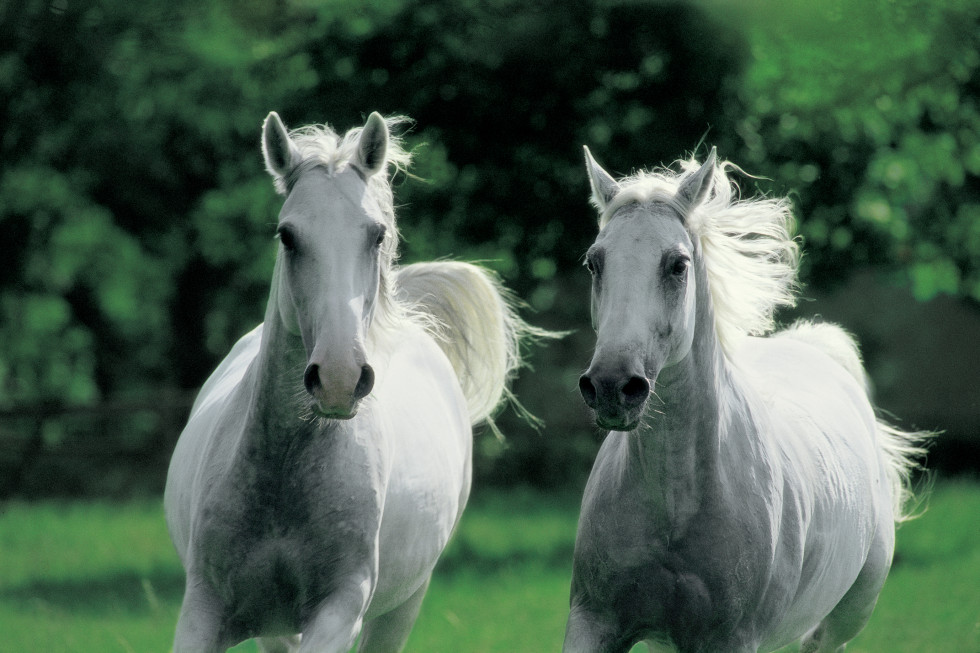Lipizzan horse breeding and beekeeping receive positive recommendation for inscription on UNESCO list of intangible cultural heritage

Lipizzaners | Author Ministstvo za kmetijstvo, gozdarstvo in prehrano
In its report (under point 7b), published late in the evening of 31 October, the Evaluation Body noted both nominations as good examples. The beekeeping dossier emphasises the ties between intangible heritage and environmental sustainability, while the nomination of Lipizzaner horse breeding traditions highlights the close cooperation of the eight proposing countries in the spirit of mutual understanding under the convention.
Final decisions on the inscription will be taken at the seventeenth session of the Intergovernmental Committee for the Safeguarding of the Intangible Cultural Heritage, which will be hosted by the Kingdom of Morocco in Rabat between 28 November and 3 December. The annual meeting within the framework of the 2003 Convention for the Safeguarding of the Intangible Cultural Heritage will be attended by representatives of States Parties, non-governmental organisations, cultural institutions and other stakeholders from around the world.
The joint nomination of eight countries, titled "Lipizzan Horse Breeding Traditions", is based on a wide range of cultural and social practices, knowledge and skills, oral traditions, rituals, celebrations, and equestrian sports related to Lipizzaner horse breeding. The elaboration of the multinational nomination brought together representatives of state stud farms and private breeders, experts in intangible heritage, cultural experts, researchers and local communities from Slovenia, Austria, Bosnia and Herzegovina, Croatia, Hungary, Italy, Romania and Slovakia. Lipizzaner horses have had a symbolic role in all eight countries for centuries and continue to represent in this symbolic way a number of communities to the present day. Their symbolic meaning is conveyed through oral tradition and folk songs and testifies to the close emotional connection between man and horse.
The nomination titled "Beekeeping in Slovenia, A Way of Life" demonstrates the richness of beekeeping heritage, its long history and traditional expressions, and the widely spread intangible cultural skills, knowledge and practices that are passed down from generation to generation. The nomination is based on elements of intangible cultural heritage, which between 2018 and 2020 were included in the list of registered elements of intangible cultural heritage, namely beekeeping, painting beehive panels, mobile beekeeping, building beehives and apiaries, breeding queen bees of the Carniolan bee, apitherapy, making small breads and wooden models, and gingerbread making.
The elaboration of both nominations was led by Ms Špela Spanžel on behalf of the Ministry of Culture. Representatives of the Lipica Stud Farm and the Slovene Ethnographic Museum participated in the preparations of nominations related to the Lipizzaner horse breeding traditions, while experts from the Slovene Ethnographic Museum, the Museum of Apiculture in Radovljica and the Slovenian Beekeepers' Association participated in the nomination related to beekeeping in Slovenia.
The following four elements of Slovenia’s intangible cultural heritage are already inscribed on the Representative List of the Intangible Cultural Heritage of Humanity: Škofja Loka Passion Play (2016), Door-to-door Rounds of Kurenti (2017), Bobbin lacemaking in Slovenia, and the Art of dry stone walling, knowledge and techniques (2018) as part of the multinational inscription of the eight countries.
The members of the Intergovernmental Committee include Angola, Bangladesh, Botswana, Brazil, Burkina Faso, Côte d’Ivoire, Czechia, Ethiopia, Germany, India, Malaysia, Mauritania, Morocco, Panama, Paraguay, Peru, Republic of Korea, Rwanda, Saudi Arabia, Slovakia, Sweden, Switzerland, Uzbekistan and Vietnam. In addition to deciding on nominations for the inscription of cultural heritage in urgent need of safeguarding, nominations for inscription on the Representative List, proposals for inclusion in the Register of Good Safeguarding Practices and requests for international assistance, the Committee will review reports on the implementation of the Convention and the current state of the elements inscribed. It will also take note of thematic initiatives on living heritage and sustainable development and will determine the composition of the Evaluation Body for the next cycle.

